The U.S. Supreme Court will hear arguments Wednesday on whether a Pennsylvania student’s First Amendment rights were violated when school officials punished her for making a profanity-filled social media post on a weekend.
The justices’ decision in the case could determine whether public K-12 schools across the nation can discipline students for their off-campus speech that could cause substantial disruptions in the school’s operations.
Brandi Levy, who was upset that she didn’t advance from the junior varsity to the varsity cheerleading squad, sent a Snapchat to 250 friends on a Saturday in May 2017 while she was hanging out at a local convenience store. The Snap had a picture of herself and another student raising their middle fingers and a caption that said, “[Expletive] school, [expletive] softball, [expletive] cheer, [expletive] everything.”
After Mahanoy Area High School coaches became aware of the Snap, they decided the then-14-year-old freshman had broken team rules requiring her to show respect for others and kicked her off the squad for a year. Levy’s parents sued the district on their daughter’s behalf, alleging her First Amendment rights were violated.
A federal judge ruled in favor of Levy and required the school to expunge her discipline record. A three-judge panel of the 3rd U.S. Circuit Court of Appeals affirmed that decision, leading the school district to appeal to the high court.
Off-campus speech
The arguments will center on whether a 1969 Supreme Court opinion, Tinker vs. Des Moines Independent Community School District, which said public schools could regulate speech that would materially and substantially disrupt the work and discipline of the school, applies to student speech that occurs off-campus.
The landmark decision was a victory for siblings John Tinker, 15, and Mary Beth Tinker, 13, and Christopher Eckhardt, 16, who were suspended in December 1965 for wearing black armbands at school to protest the Vietnam War. The Supreme Court ruled 7-2 that their First Amendment rights had been violated and that to justify prohibiting a particular expression of opinion, the school must show its action “was caused by something more than a mere desire to avoid the discomfort and unpleasantness that always accompany an unpopular viewpoint.”
John Tinker, now general manager of KPIP radio station in Fayette, Mo., and Mary Beth Tinker, a retired registered nurse, are backing Levy. (Eckhardt died in 2012).
The Tinkers contend the Mahanoy district wants to extend government control over speech “far beyond the schoolhouse gate and even into the home.”
“The expansive authority petitioner advocates would stifle far more than the use of offensive words,” the Tinkers say in a friend-of-the-court brief. “It would empower school authorities to ban a wide swath of speech on matters that concern young people, including politics, religion, school administration or anything else that might cause controversy.”
The American Civil Liberties Union — which represents Levy, who is now 18 — said that thanks to the precedent set by the Tinker case, it has successfully defended the right of students to wear an anti-abortion armband, a T-shirt that is pro-LGBT and shirts critical of political figures.
Mike Hiestand, senior legal counsel for the Student Press Law Center, said more and more students are taking their complaints online. He cited as an example a student in Georgia who took a photo last year on the first day of in-person school that showed students walking down a very crowded hallway and put it on Twitter.
“That had an immediate and significant impact on how they were going to comply with some of the COVID protocols,” Hiestand said of school administrators. “It’s really important we make sure we don’t cut off that opportunity for students to get their voice out there.”
Social media impact
The Mahanoy district argues that one way or another, schools must grapple with off-campus speech when it migrates on campus and a decision in favor of Levy will undercut their ability to protect students from harassment and bullying.
“Students’ near ubiquitous and near constant access to social media creates ever more avenues for off-campus communications that can rapidly permeate the school environment,” the district says in a brief. “In seconds, from anywhere, students can share any thought with the entire school community-a force multiplier for both the best and worst student impulses. The pervasiveness of social media ensures that more of students’ off-campus speech finds its way to the school community instantly, inevitably and sometimes virally.”
In Levy’s case, the Snapchat message was “blasted” to an audience that included many fellow students, the brief says.
The brief also says federal laws require schools to address harassment on the basis of sex, race, color, national origin and other characteristics, without regard to where that harassment happens. If students lose educational benefits or can’t participate in extracurricular programs because of discrimination, schools could be sued, according to the brief.
But the ACLU counters that schools can regulate speech that constitutes harassment and bullying under state and federal law. Expanding the Tinker opinion to cover off-campus speech is unnecessary and would undermine young people’s freedom of speech, the organization says in a brief.
In Levy’s situation, her “expression of frustration” was not threatening or harassing and was shared only with her Snapchat friends who had agreed to receive her posts, the brief says. The only evidence of disruption cited by the district was that students approached coaches to express their concerns about the Snap, and some were visibly upset.
“Students understandably have to curtail what they say within the school environment,” the ACLU says. “But they should not risk school discipline for what they say on a spring break mission trip with their church youth group, or in a friend’s living room at a weekend gathering, merely because the school thinks it might be disruptive.”
Stuart Knade, chief legal officer of the Pennsylvania School Boards Association, said schools are not seeking to regulate anyone’s private life. The standard of regulating only speech that disrupts the school environment or infringes on the rights of others is fine, but the on-campus and off-campus distinction is not workable, he said.
“The focus should be on impact on the school environment and on other students rather than on where someone is standing when they hit ‘send’ or hurl a rock,” Knade said.
He said schools are bombarded regularly with pleas from parents to do something about online bullying, adding, “We’re looking forward to greater clarity in the decision that will come out of this case.”
Split opinions
Numerous friend-of-the-court briefs have been filed in the case including ones from teachers, principals, school boards and anti-bullying organizations that support the district.
The Biden administration also has weighed in, saying in its brief that some narrow categories of student speech can be potentially subject to discipline.
“One example is speech that can create a threatening environment, or that can deprive other students of educational opportunities to which they are entitled, such as bullying and harassment,” the brief says. “Another example is speech that would undermine the essential functioning of the educational curriculum (such as posting the answers to an exam) or breach school security (such as instructions for hacking into the school’s computer system).”
The Cyberbullying Research Center, along with eight other groups, is asking for a ruling that protects the ability of school officials “to address peer harassment in the digital age when much of this behavior occurs off school grounds or online, and the distinction between on-campus and off-campus has become meaningless.”
A group of 32 academics and researchers who focus on methods of preventing bullying have sided with Levy. They say zero-tolerance punishment is ineffective and want a ruling that will allow schools to address off-campus bullying without imposing punishments that restrict students from speaking freely.
Some religious liberty groups also are backing Levy. One of them, The Becket Fund for Religious Liberty, says giving public-school administrators the authority to sanction speech made in public, in a house of worship or at home interferes with the right of parents to direct the religious upbringing of their children.
Levy’s post was juvenile and crude “but the Constitution protects the speech of both Billy Graham and Howard Stern,” the organization also says in a brief.
“This is a feature, not a bug,” the brief says. “The founders did not trust the government — or even federal courts — to distinguish between worthless and valuable speech. To protect one, courts must allow both.”
Copyright 2021 United Press International, Inc. (UPI). Any reproduction, republication, redistribution and/or modification of any UPI content is expressly prohibited without UPI’s prior written consent.
—-
This content is published through a licensing agreement with Acquire Media using its NewsEdge technology.



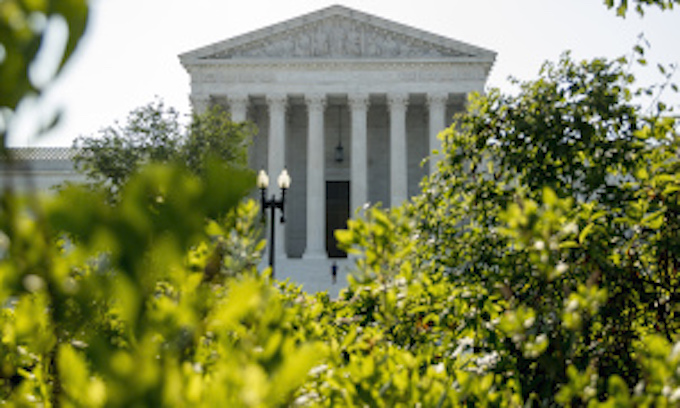
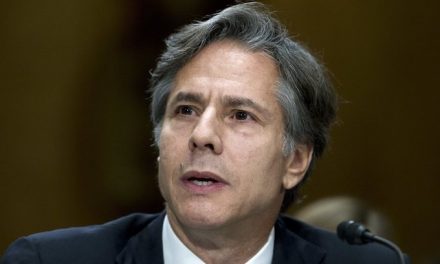
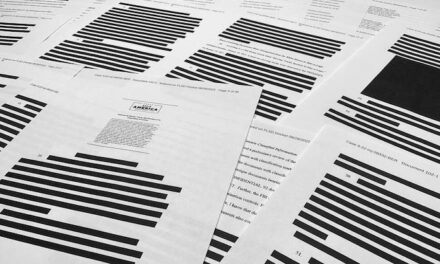
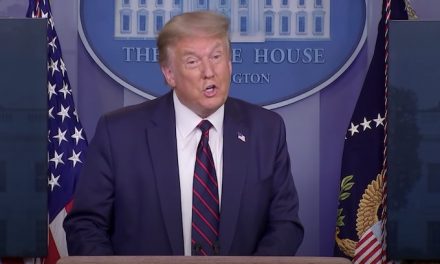
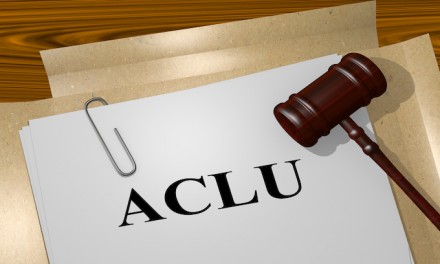






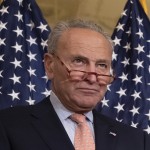




There was a feeling of entitlement that she be moved up to Varsity. When that did not happen, she gelt compelled to show off her English skills as well as her respect for the school’s selection process in such matters. She has been failed, however, by not being taught that everyone cannot come out on top where there is competition. There are winners and losers in all things in Life. While she may not have achieved her goal in this particular instance, she may well be successful in furture endeavors.
SHE may have had that entitlement attitude. BUT WHAT the school did to her, OFF CAMPUS, and out of school time, was WRONG AND clearly violated her first amendment rights.. PERIOD.
You are wrong, PERIOD. Being on the cheerleader squad is a PRIVILEGE bestowed by the SCHOOL and since SHE violated the HIGHER ethical standards the SCHOOL set for someone being on the cheerleader squad it was FULLY within the RIGHTS of the SCHOOL to remove her from the squad since it was the SCHOOL who APPROVED of her being on any cheerleader squad TO BEGIN WITH!
No. A RIGHT trumps a privilege. She was rude but being rude is her right and she did it on her own time and on her own place.
Deal with it.
So “Being on the squad”, means the school gets to effectively DICTATE EVERY THING SHE DOES IN LIFE, everywhere, every day of the week, EVEN WHEN SCHOOL IS NOT IN SESSION??
Sorry red, but you are Totally and utterly wrong on that.
Wait a minute they can fire teachers for posting about the stolen election, but his girl goes on a vulgar tirade and it’s free speech. People best be careful about upholding anything as free speech because it could get real ugly.
True. IF THEY DID fire teachers, for speaking out about the stolen election, THEN THAT TOO SHOULD GET condemned, for violating free speech..
That’s basically the bottom line, isn’t it? From what I remember WAY back in early 60s high school, sports team, especially cheerleading team competition among athletes and girls wanting to be noticed is INTENSE to say the least. The fact that she didn’t make the Varsity Cheerleading team meant that obviously decisions had to be made either by competency standards or by political standards (which you KNOW are indelibly etched in high school pecking orders). She wasn’t good enough or popular enough so she didn’t make the cut. Her response was understandable and obviously immature but not unexpected. How it was bullying towards the school is not at all indicated nor disruptive of school operations. Good points raised about her parent’s possible entitlement attitude encouragement, we may never know. Her juvenility should be obvious and result in a not giving any weight to her disgust and let the dust settle and get on with operations. Hopefully, she will be counseled by adults to rethink her anger and look at her demeanor and skills the next time. Competition breeds excellence if it’s allowed to.
You don’t understand how this works. Wrong, IT WAS unexpected for her to act that way. Being a member of a cheerleader squad is for those of the HIGHEST level of CHARACTER and MATURITY which her expletive filled rant PROVED she clearly does not have. SHE HAS NO BUSINESS representing the school in ANY capacity, which is what being on any cheerleader squad or football team or even band member does when they are at the particular events they perform at. And as such, it is PERFECTLY within the school’s prerogative to ban her from ANY such capacity FOREVER, unless she proves she has developed the CHARACTER that makes her WORTHY to be in such a privileged position bestowed upon her PURELY based upon the schools standards and whether she MEETS those much higher than average standards.
So in essence, if you wish to ‘represent the school’, you IYO, LOSE ALL OF YOUR RIGHTS, the minute they say “yes you can’??
Sorry, but i call BULL.
Well said!
Why does she care anyway? She already said F*** Cheer – so she doesn’t want to be part of that team. The coach basically gave her what she wanted. Any other coach, in any other sport would bench or cut a player that doesn’t stand up for the team. Why should Miss Levy be different? Now she regrets getting what she asked for and wants to blame someone else for her bad decision to express her sour grapes. She certainly has the right to say what she wants, but she is clearly out line when she demeans the team and hears the consequences.
Now do you see what the consequences are for letting one “entitled” immature schmuck “take a knee” and disrupt the NFL – it trickles down to high school now, and kindergarten in a year or two, and pretty soon nobody cares about sports. I, for one, quit caring about or watching NFL games back then, and now there’s little left but Curling and Calf Roping and even those may be fixed or politically incorrect!
Brandi Levy, certainly has a right to freedom of speech, however with her finger gestures and her foul mouth, she obviously was not raised right by her parents.
WHEN so much of media, socila media etc, Seems to show such profanity is ‘ok’, i am surprised MORE KIDS are not like her.
And seeing it’s the school that sets the standards and requirements for someone to serve in such a capacity representing the school, the school has EVERY RIGHT to remove her from any such position until she demonstrates she has acquired the character and maturity to serve in such a capacity as cheerleader, at any level, representing the school.
No. All must obey the First Amendment and this includes schools.
She was rude. She was immature. She has the RIGHT to be rude and immature because of the First Amendment.
So red, you believe that NO ONE should have any rights, while ‘representing’ a school? THAT THE SCHOOL is the only one that has rights?
We either have a Constitutional Republic, as we have had for almost 250 years of our history, or we do not. The 1st amendment to our nations Constitution is what defines freedom. It recognizes that a free people must be able to freely express their opinion to the world around them. The exchange of ideas and beliefs is the very basis of freedom. There is no such thing as hate speech in a free society. Now that we have nullified the 1st amendment, we are no longer a free society, and no longer a Constitutional Republic. We are free to speak our mind or we are not. If we are not, we are no longer a democracy. Sadly, this ‘experiment’ in democracy, did not quite make it 250 years. I don’t know what that tells you. I do know that the basis for communism and socialism has failed every time it has been tried.
With how the left, seems to continually be SHREDDING our constitution, right by right, more and more its looking liek we no longer HAVE that republic.
That’s IDIOTIC AND IRRELEVANT. This has NOTHING to do with free speech. The SCHOOL has standards and character requirements for someone to be on any position REPRESENTING THE SCHOOL. That’s what those on cheerleader squads, the football team or even the band are DOING! Representing the SCHOOL when they put on their uniforms. That makes being on the cheerleader squad or any such group a PRIVILEGED position since they are THERE with the SCHOOLS APPROVAL. Since it’s with the SCHOOLS APPROVAL that someone is on the cheerleader squad they have EVERY RIGHT to remove someone from the squad if they are not demonstrating the principles and CHARACTER required for someone to be in such a privileged position, which the did. That means THIS HAS NOTHING TO DO with free speech but the CHARACTER of the person who is in such a position.
You are correct that this is not a “free speech” issue. This young lady does have the right to free speech, to be foolish, careless, immature, foul, disrespectful, perhaps even stupid. However she agreed to (or signed) a code of ethics that is expected from the cheer squad. If she is unwilling to abide by these stipulations, then there are CONSEQUENCES for that position. See Ya, you’re off the cheer squad! You can not take that authority away from the school.
What’s next, no panties for cheerleaders? I vote Yes – it is their First Amendment right of Free Speech – isn’t that how Larry Flynt won the right to keep Hustler magazine raunchy?
We endured Beyonce at Super Bowl, and Cardi B at the Grammys as Free Speechers.
Keith, but CAN THAT “code of conduct” extend to EVERYTHING You do, outside of school?????
An immature response by the girl, to be sure, BUT,fact she was neither at school nor on school grounds when she did it, that matters, schools, corporations and governments in particular, MUST RESPECT a persons constitutional rights, PERIOD, either we all have these rights or we don’t, there is no in-between. The attempt to compare the Tinker case “for wearing black armbands at school” answers itself the term “at school” is an entirely different situation. Do I agree with what people did in either case here, no I do not, but I seem to remember some of my younger years, many decisions were probably not so smart or well thought out at all. I ask you to simply look around you today and make a list for yourself, how many of YOUR constitutional rights have been trampled on by the excuse of a blown out of proportion (by the government I might add) virus, it is a very slippery slope. We must ALLWAYS PROTECT AGAINST INTRUSION ON OUR RIGHTS.
You are WRONG, PERIOD. So many clueless blatherers here claiming this is about free speech. IT ISN’T. This is about the PRIVILEGED position of being on the cheerleader squad and the schools RIGHT to ensure ALL who represent the school in such groups have and MAINTAIN the character and PRINCIPLES and MORALITY as required by the SCHOOLS STANDARDS for such groups. She CLEARLY was lacking in CHARACTER as required by the school, who approve of her being in that position in the first place, and as SUCH the school has EVERY RIGHT to remove her from such a privileged position.
I suspect she worked for the position and simply was not quite good enough, or just maybe, since NEITHER ONE OF US KNOW THE REAL FACTS, other than the constitutionality some of understand, it could very well be one of those LITTLE PRIVILAGED PEOPLE you speak of, beat her out WITHOUT MERIT, you don’t know that and neither do I, she may very well have been bumped for privilege by another alone. What I do know, it is people like you that are willing to throw your liberty and rights away, are simply fools. A liberty or right lost is usually a liberty or right that is gone forever, only fools are willing to give them away, either we all have them or no one has them.
IF it was a matter of “they show they don’t represent our schools principles” WHY THEN DO We see story after story, every year, of HIGH SCHOOL FOOTBALL players, who act WORSE than she did, getting drunk in public, stealing and committing OTHER CRIMES.. YET THEY STILL GET TO NOT ONLY Stay on the team, but STILL PLAY?!?!?!?
This was nothing she did at school, or during school. What she has to say on her own time is her business, NOT the schools.
We all said that but we didn’t publish it !!!
Just make darn sure you’re not wearing a MAGA shirt or making pro-Trump statements. THAT’S where free speech ends.
Touche !
BUT you can call for cops to get killed, and be CELEBRATED for that “Free speech”..
I don’t care much about the teenager or what she said. She’s a perfect example of a public school product raised by permissive parents. The Democrats would have this 14 yr. old voting for president if they could. That should strike fear into the hearts of every citizen with common sense.
What I do care about is the decision in this case. What the girl said is a perfect example of what freedom of speech is for. It was meant to cover the outlier, the fringe example of speech the government doesn’t like. No one needs a Constitution to cover approved speech, speech the culture cancel loves. We need a Constitution to cover speech the government, (in this case the school), doesn’t approve.
We have that Constitution that protects our right to speak without fear of government intervention if the intimidated, pre-paid, worthless justices on the Supreme Court don’t take it away from us.
There is some thought that the court might make her age an issue. Traditionally schools have been given some leeway for the purpose of maintaining discipline.
Discipline IN CLASS< i agree. BUT this was done NOT IN CLASS Or even during school time…
Tell it to the court.
Discipline off the school grounds for actions of any kind off the school grounds, anytime of the day or night is the responsibility of parents. Wonder where she learned all that foul mouth?
Who cares, it is not any business of the school.
NO, NO, NO! This has NOTHING to do with FREE SPEECH! This is about the PRIVILEGED position of being on the cheerleader squad and the schools RIGHT to ensure ALL who represent the school in such groups have and MAINTAIN the character and PRINCIPLES and MORALITY as required by the SCHOOLS STANDARDS for such groups. She CLEARLY was lacking in CHARACTER as required by the school, who approve of her being in that position in the first place, and as SUCH the school has EVERY RIGHT to remove her from such a privileged position.
Way to spam the discussion, red raider. You have to be a Democrat. They’re the only ones that believe saying something over and over will convince everyone they’re right.
So when I drive 150 to protest speed limits, that, like flag burning is protected speech? This is less about free speech than it is vulgar, foul conduct that embarrasses the school and the “in front of the audience” position she desires. She lost nothing except maybe a respect for couth behavior.
Driving is not ‘free expression’ though.
” No one needs a Constitution to cover approved speech, …”. There you hit the nail squarely on it’s head.
While the student’s language and action leaves a lot to be desired, the school should not be able to discipline a student for speech which occurs off school property outside of school hours.
In a case such as this the parents should be the one to punish the child. I’m going to guess the expletive started with the letter F. While that may not be a preferred word for a teen to use, I have trouble seeing how that is threatening students. If the girl had threatened to commit an act of violence against a student, the school or a teacher I could understand the need for the school to act.
All of us experience disappointments in life. Sometimes we handle those better than at other times. This situation required a parent talking to their child about what is acceptable not a school administrator punishing a student for something that happened off school grounds.
” If the girl had threatened to commit an act of violence against a student, the school or a teacher I could understand the need for the school to act.”
Sorry, not even this should be grounds for the school to enter the picture. Perhaps the parents should be charged with contributing to the delinquency of a minor.
NO, NO, NO! This has NOTHING to do with FREE SPEECH! This is about the PRIVILEGED position of being on the cheerleader squad and the schools RIGHT to ensure ALL who represent the school in such groups have and MAINTAIN the CHARCTER and PRINCIPLES and MORALITY as required by the SCHOOLS STANDARDS for such groups, which she is on the squad WITH THE SCHOOLS PERMISSION TO BEGIN WITH!
And CHARACTER isn’t in PLAY ONLY when she is on campus but is a 24/7/365 thing. She CLEARLY was lacking in CHARACTER as required by the school, who approve of her being in that position in the first place, and as SUCH the school has EVERY RIGHT to remove her from such a privileged position. If she hates the so much give ONE REASON they should let her CHEER for the school. SHE HAS NO BUSINESS BEING ON THE SQUAD!
Sorry,regardless of how I feel about her “Snapchat” —I don’t think a school has any business controlling off campus own time activity.
And given the amount of propaganda schools shove down students throats,it is time to put these taxpayer supported employees in their place .
Just like if a person working for company X, says in his OWN PRIVATE Facebook account (or anywhere else for that matter), something a person AT THE COMPANY dislikes, they shouldn’t be able to fire them either.
NO, NO, NO! This has NOTHING to do with FREE SPEECH! THEY ARE ALREADY CONTROLLING WHO IS ON THE SQUAD! So of COURSE this is NOT about free speech but the SCHOOLS PERFECT RIGHT to remove her since they gave her the permission to be a cheerleader in the FIRST PLACE!
This is about the PRIVILEGED position of being on the cheerleader squad and the schools RIGHT to ensure ALL who represent the school in such groups have and MAINTAIN the character and PRINCIPLES and MORALITY as required by the SCHOOLS STANDARDS for such groups. She CLEARLY was lacking in CHARACTER as required by the school, who approve of her being in that position in the first place, and as SUCH the school has EVERY RIGHT to remove her from such a privileged position.
Red.. I honestly wonder. ARE YOU a proud democrat? CAUSE YOU certainly sound like one!
The girl can say whatever she wants to on Snapchat, off campus on her own time, if that really makes any difference. She does have to follow some standards of conduct when representing the school as a member of the cheerleading squad or any other group. In most schools, if not all, students have to agree to and sign that they will follow those standards. In this day and time, most of those agreements also include something about social media and “bad-mouthing their fellow teammates.”
I remember when this first happened. The girl clearly expressed her feelings for the teams and selection processes. The teams granted her wish. And it wasn’t even permanent, just one year. She was not suspended from school, so she was not denied access to curriculum. This is miles from a free speech issue. This is a frivolous lawsuit by the parents, it should have been tossed out when the papers were filed, and money and time not wasted. This is like refusing a payment indignantly (rudely) and then coming back later demanding payment after the money was already processed to someone else.
BINGO! THANK YOU! Her being on the squad is PURLY a PRIVILEGE and is not the same as generally being allowed to attend school. GOOD COMMENT!
“Nice” speech needs no First Amendment protection because no one wishes to censor it. “In your face” speech is the underlying reason the First Amendment must be enforced and obeyed.
NO, NO, NO! This has NOTHING to do with FREE SPEECH! This is about the PRIVILEGED position of being on the cheerleader squad and the school’s RIGHT to ensure ALL who represent the school in such groups have and MAINTAIN the character and PRINCIPLES and MORALITY as required by the SCHOOLS STANDARDS for such groups. She CLEARLY was lacking in CHARACTER as required by the school, who approve of her being in that position in the first place, and as SUCH the school has EVERY RIGHT to remove her from such a privileged position.
Red just vote Biden, and drop it. If we are not allowed to speak freely, then we do not have free speech.
THat’s the point i’ve been trying to make to red.. bUT i am really wondering, is his idea of red, COMMIE RED.
Exactly Elderal.. As the old phrase goes. I MAY NOT LIKE WHAT YOU SAY, but i will defend your right to say it!
Freedom of speech to a liberal means pornography, profanity, obscenity, hate against America, hate against Christians, hate against the military, hate against traditional family values, hate against heterosexuals, hate against individualism . . ..
I suppose many of the commenters worship vulgar and low intelligence NBA and NFL players who hate the USA, Hate common decency, Hate the couth. That is the way it seems to me. It is like reading the stuff made from upset 17 year-olds who have been so spoiled, they think they don’t have to act decent. The foul mouthed girl should have been denied any position of honor, no matter how hard she worked, I can’t imagine being anywhere near parents who support her. She embarrassed herself, her family, her school, and the community that supports her. She should be denied, just like any other school kid who publicly acts out that way.
I don’t support vulgarity. BUT LIKE I said above “I MAY NOT LIKE what you say, but i will defend your right to say it. THAT IS HOW IT SHOULD Be.
The NFL hates America and everything it stands for. Fine with me if they feel that way. I, on the other hand, am free to hate the NFL and to not watch them (or base ball or basket ball, and now soccer). They can all go to #ell, but they have the right to their opinion, as I have the right to mine.
We are talking about the public school system, right?
The system that for over two decades has been pushing that competitions should not end with hurt feelings so EVERY body wins, so EVERY body wins a trophy, so EVERY body is special.
A school system that for at least the last decade has redirected its’ teachings from Math, Science, History, English, and Social Sciences to promote Social Systems. Ethnic Diversity (which is in itself laudable), which is interesting to see how we differ from others, unless it is at the expense of showing how we are similar and goals that we can achieve together. Ethnic Cleansing in the demonizing of so-called “White Privilege,” which led to the 1619 Bull snot. And all wrapped up in the new cult religion of Woke-ism.
Add a heavy dash of pro-Marxist ideology and is it any wonder we have growing generations of rude, obnoxious and selfish individuals, and a growing number of wannabe dictators trying to widen their circle of influence.
You can choose who is who for yourselves.
That’s a good point. SINCE schools HAVE been pushing the “Everyone is successful, everyone gets an award’ bull, why should this gal, be BOOTED off the cheer squad, for something she did OUT OF SCHOOL TIME AND OFF school grounds?